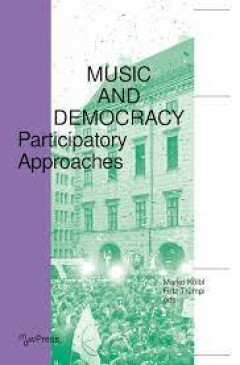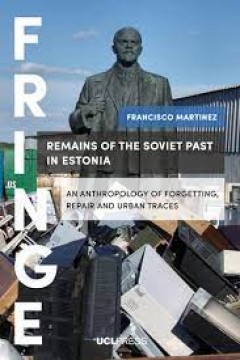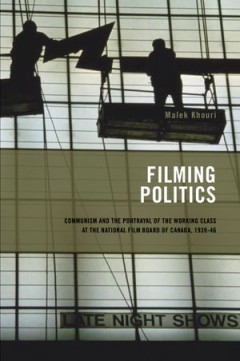Filter by

The economics of transition
Russian analysts discuss postcommunist economic transformation.The end of the Cold War saw an unprecedented number of countries changing economic policies at the same time. One result has been the emergence of a new field of economics, postcommunist transformation theory. Written by prominent Russian analysts, the essays in this book discuss the economic policy problems that confront postcommun…
- Edition
- -
- ISBN/ISSN
- 9780262273367
- Collation
- 1 online resource (xxvi, 1030 pages) :illustrations, charts
- Series Title
- -
- Call Number
- -

Requiem for communism
The first survey of the recent requiems for communism by European writers and artists.In Requiem for Communism Charity Scribner examines the politics of memory in postindustrial literature and art. Writers and artists from Europe's second world have responded to the last socialist crisis with works that range from sober description to melancholic fixation. This book is the first survey of this …
- Edition
- -
- ISBN/ISSN
- 9780262283335
- Collation
- 1 online resource (xii, 245 pages) :illustrations
- Series Title
- -
- Call Number
- -

State making and environmental cooperation :linking domestic and internationa…
The Amu Darya and Syr Darya rivers of Central Asia flow across deserts to empty into the Aral Sea. Under Soviet rule, so much water was diverted from the rivers for agricultural purposes that salinity levels rapidly rose and the sea shrank. There was an upsurge in dust storms containing toxic salt residue, and a new desert began to replace the sea. At the same time, agricultural runoff rendered…
- Edition
- -
- ISBN/ISSN
- 9780262285919
- Collation
- 1 online resource (ix, 274 pages) :map.
- Series Title
- -
- Call Number
- -

Music and Democracy Participatory Approaches
Music and Democracy explores music as a resource for societal transformation processes. This book provides recent insights into how individuals and groups used and still use music to achieve social, cultural, and political participation and bring about social change. The contributors present outstanding perspectives on the topic: From the promise and myth of democratization through music techno…
- Edition
- -
- ISBN/ISSN
- 9783839456576
- Collation
- -
- Series Title
- -
- Call Number
- -

Remains of the Soviet Past in Estonia
What happens to legacies that do not find any continuation? In Estonia, a new generation that does not remember the socialist era and is open to global influences has grown up. As a result, the impact of the Soviet memory in people’s conventional values is losing its effective power, opening new opportunities for repair and revaluation of the past. Francisco Martinez brings together a number …
- Edition
- -
- ISBN/ISSN
- 9781787353534
- Collation
- -
- Series Title
- -
- Call Number
- -

Creating the Intellectual Chinese Communism and the Rise of a Classification
This book offers a new analysis of the intellectual and the Chinese socialist revolution. Under the Chinese Communist Party, the intellectual was never simply an outspoken scholar, a browbeaten artist, a supportive official, or any kind of person facing an increasingly powerful political regime. The intellectual was first and foremost a widening classification of people based on Marxist thought…
- Edition
- -
- ISBN/ISSN
- 9780520303690
- Collation
- -
- Series Title
- -
- Call Number
- -

Filming Politics: Communism and the Portrayal of the Working Class at the Nat…
The National Film Board of Canada (NFB) was created in 1939 to produce, distribute, and promote Canadian cinema both domestically and abroad. During the early years of the NFB, its creative output was largely informed by the turbulent political and social climate the world was facing. World War II, Communism, unemployment, the role of labour unions, and working conditions were all subjects feat…
- Edition
- -
- ISBN/ISSN
- 9781552386705
- Collation
- -
- Series Title
- -
- Call Number
- 791.43 KHO f
 Computer Science, Information & General Works
Computer Science, Information & General Works  Philosophy & Psychology
Philosophy & Psychology  Religion
Religion  Social Sciences
Social Sciences  Language
Language  Pure Science
Pure Science  Applied Sciences
Applied Sciences  Art & Recreation
Art & Recreation  Literature
Literature  History & Geography
History & Geography